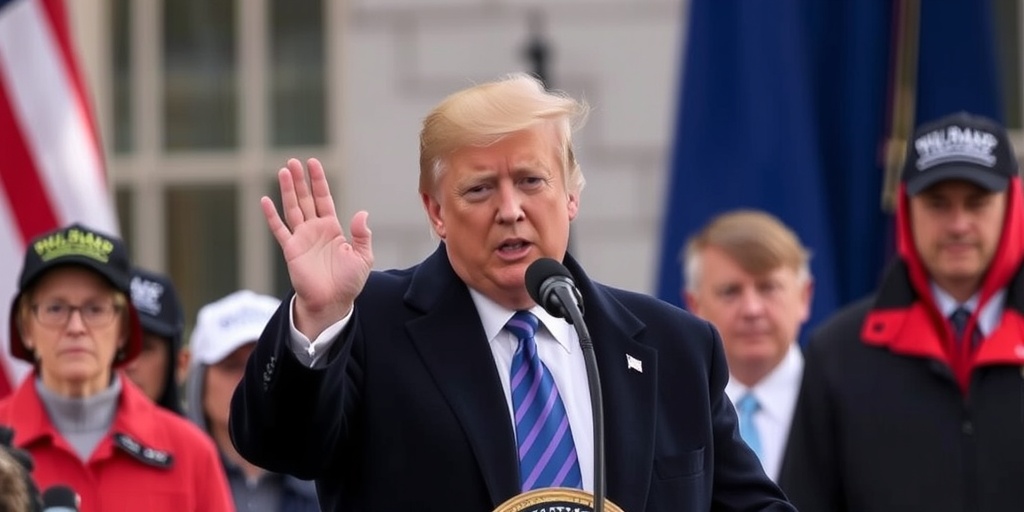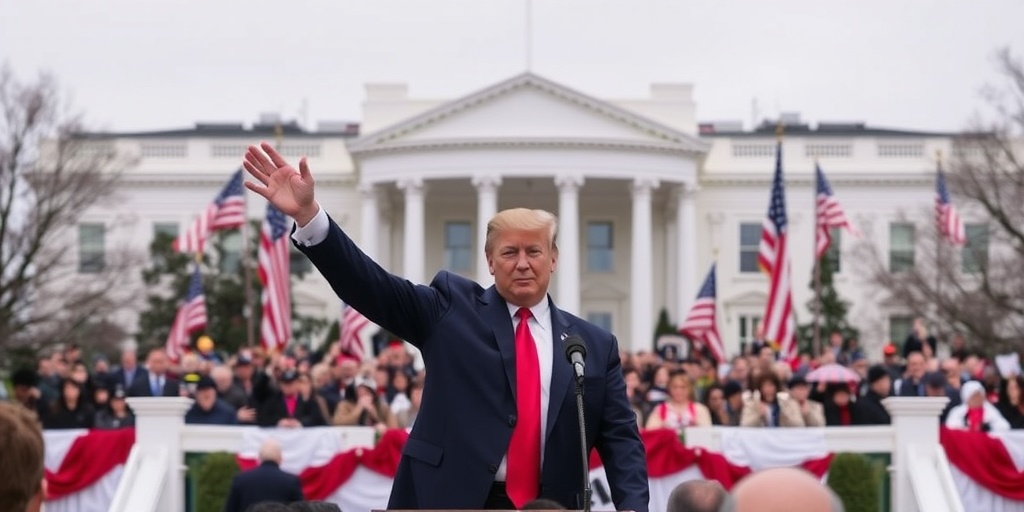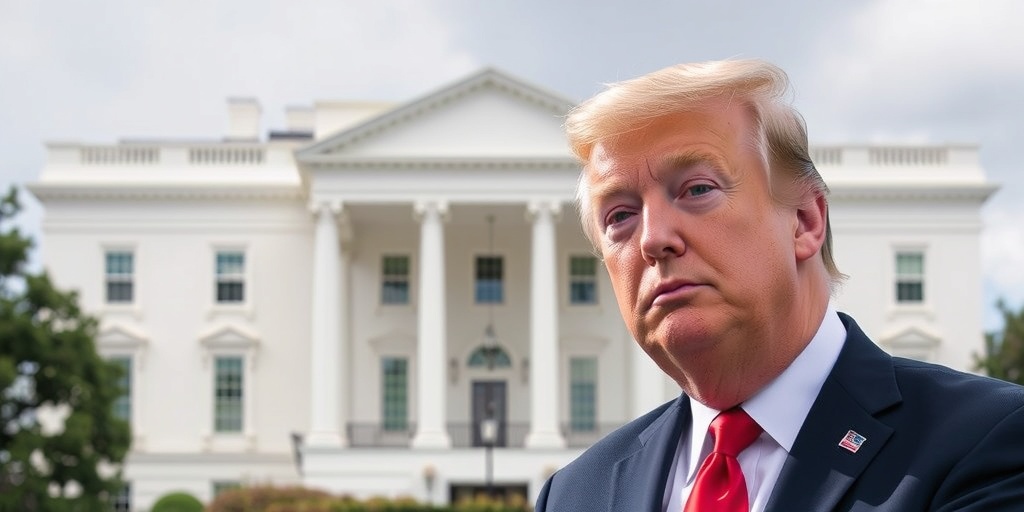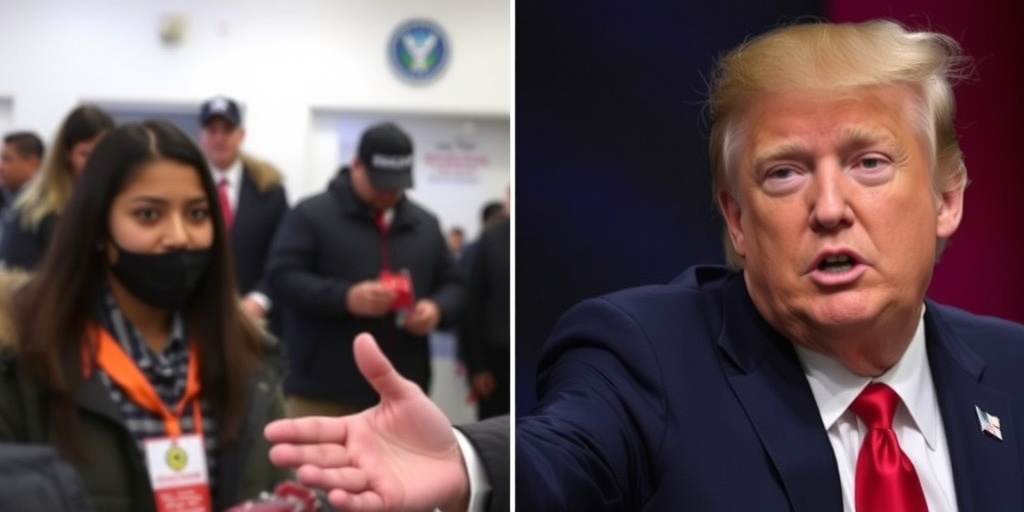Now Reading: Nonprofits Sue Trump Administration Immediately After Inauguration
-
01
Nonprofits Sue Trump Administration Immediately After Inauguration
Nonprofits Sue Trump Administration Immediately After Inauguration

Three Nonprofit Groups Sue Trump Administration Over Alleged Violations of Public Advisory Committee Laws
In a swift response to President Trump’s inauguration on Monday, three nonprofit organizations filed lawsuits against his newly established Department of Government Efficiency, asserting that the initiative is breaching laws stipulating that federal advisory committees must be accessible to the public and incorporate a range of perspectives. This landmark legal maneuver underscores the tension between the executive branch and civil society organizations concerning transparency and accountability in government operations.
The Department of Government Efficiency, branded by the Trump administration as a mechanism to reduce waste and curb bureaucratic red tape, is not an official federal agency. Rather, it has been characterized as an informal initiative spearheaded by prominent billionaire supporters of Trump, namely Elon Musk and Vivek Ramaswamy. Both Musk and Ramaswamy have indicated they will operate outside of traditional governmental structures while simultaneously advising officials within the new administration. The informal nature of their roles raises questions about the legitimacy and legality of their activities, particularly concerning adherence to federal laws governing advisory committees.
According to the lawsuits, the structure and functioning of this new department directly contravene the 1972 Federal Advisory Committee Act (FACA). This pivotal legislation mandates that committees composed of external advisers must be "fairly balanced in terms of the points of view represented" and ensures that their records are accessible to the public. The nonprofit organizations contend that the current leadership of the Department of Government Efficiency demonstrates a clear lack of diversity in viewpoints. They argue that both Musk and Ramaswamy, along with their associates, share a singular ideological perspective favoring stringent cuts to government size and expenses.
The plaintiffs’ legal actions seek a court order to halt the operations of the Department of Government Efficiency until it can demonstrably comply with the requirements set forth by FACA. The lawsuits collectively aim to protect the principles of transparency and pluralism in federal advisory processes.
One notable lawsuit emerged from a coalition including the American Federation of Government Employees (AFGE), a prominent union representing federal workers, alongside the State Democracy Defenders Fund, a nonprofit watchdog group focused on government accountability. Their suit highlights concerns regarding the implications of allowing a non-diversified group to dictate policy decisions without public oversight or input.
In another significant case, plaintiffs include the liberal good-government group Citizens for Responsibility and Ethics in Washington (CREW) and the American Federation of Teachers (AFT). Skye Perryman, the CEO of Democracy Forward, a legal nonprofit which is backing the second coalition, emphasized the necessity of transparency in government operations. “The question every American should be asking is, ‘What are they hiding?’” Perryman articulated during a press conference. The assertion reflects widespread concerns about potential lapses in accountability given the ambiguous structure of the Department of Government Efficiency and its implications for public policy.
Furthermore, the third lawsuit was initiated by National Security Counselors, a nonprofit organization dedicated to advocating for the rights of federal whistle-blowers. Their involvement signifies a broader apprehension among various segments of civil society regarding the potential ramifications of an opaque governmental advisory structure.
While Katie Miller, a spokesperson for the Department of Government Efficiency, has yet to provide a responsive statement to inquiries about the accusations, the emergence of these lawsuits signifies a profound challenge to the Trump administration’s approach to governance. The contention surrounding the interplay between efficiency and democratic oversight is emblematic of a larger national dialogue about the role of government in society and the metrics that should guide its functioning.
As these legal proceedings unfold, they are likely to draw significant attention not only from policymakers and legal experts but also from the general public, who are increasingly aware of the importance of diversity of thought and accountability in government advisory roles. The plaintiffs are not merely contesting the establishment of a new administrative structure; they are advocating for fundamental democratic principles that ensure all voices are heard in the formulation of public policy.
The outcome of these lawsuits may have lasting implications for the operation of federal advisory committees, emphasizing the need for inclusivity and transparency within the structure of governance. As civil society remains vigilant, the legal actions represent an essential front in the ongoing struggle to uphold democratic ideals in the face of perceived encroachments on accountability and public engagement.
Stay Informed With the Latest & Most Important News
Previous Post
Next Post
-
 01New technology breakthrough has everyone talking right now
01New technology breakthrough has everyone talking right now -
 02Unbelievable life hack everyone needs to try today
02Unbelievable life hack everyone needs to try today -
 03Fascinating discovery found buried deep beneath the ocean
03Fascinating discovery found buried deep beneath the ocean -
 04Man invents genius device that solves everyday problems
04Man invents genius device that solves everyday problems -
 05Shocking discovery that changes what we know forever
05Shocking discovery that changes what we know forever -
 06Internet goes wild over celebrity’s unexpected fashion choice
06Internet goes wild over celebrity’s unexpected fashion choice -
 07Rare animal sighting stuns scientists and wildlife lovers
07Rare animal sighting stuns scientists and wildlife lovers





















